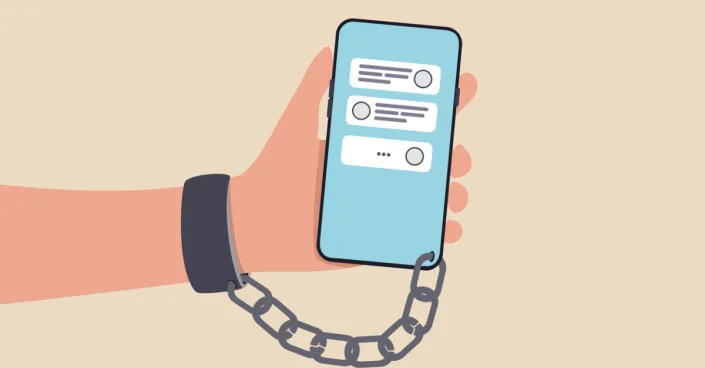- 98143 70700
- info@thehermitage.rehab
- 22, Circular road, Opp. VR Ambarsar, Amritsar
In the modern world, digital technology has become an integral part of our daily lives. We rely on it for communication, entertainment, education, and work. However, this reliance has led to a new form of addiction that is becoming increasingly common – digital addiction. This addiction is characterized by excessive and compulsive use of digital devices and platforms, leading to negative consequences such as social isolation, anxiety, and depression. In this article, we will explore the impact of the digital era on our lives and whether we are becoming slaves to another form of addiction.
The rise of digital technology has undoubtedly brought abundant reimbursements. The internet, for example, has made it easier for us to connect with people from all over the world, access information, and even work remotely. Social media platforms like Facebook, Instagram, and Twitter have enabled us to stay connected with our friends and family, share our experiences and ideas, and build communities around common interests. However, the downside of this connectivity is that it has become a constant source of distraction, leading to the neglect of real-life relationships and responsibilities.

Digital addiction is not a new phenomenon, but it has become more prevalent in recent years. According to a study by Common Sense Media, the average teenager spends up to nine hours a day on digital devices, while adults spend around four hours a day. This excessive use of technology has been linked to a range of negative consequences, including poor sleep, increased anxiety and depression, and decreased academic performance. Additionally, the constant need to check notifications and updates has led to a phenomenon known as “digital FOMO” (fear of missing out), which has further fueled the addiction.
The addictive nature of digital technology is not accidental. Tech companies employ persuasive design techniques to keep users engaged, such as infinite scrolling, notifications, and personalized content. These techniques exploit our psychological vulnerabilities, such as our need for social validation and our fear of boredom. As a result, we find ourselves spending more and more time on our devices, often without realizing the negative impact it is having on our lives.

So, are we becoming slaves to another form of addiction in the digital era? The answer is not straightforward. While digital addiction is a real and growing problem, it is also important to acknowledge the benefits of digital technology. It has transformed the way we communicate, learn, and work, and has the potential to improve our lives in countless ways. However, we need to learn to use it in moderation and be aware of the negative impact it can have on our mental health and well-being.
In conclusion, the digital era has brought about many positive changes in our lives, but it has also given rise to a new form of addiction. Digital addiction is characterized by excessive and compulsive use of digital devices and platforms, leading to negative consequences such as social isolation, anxiety, and depression. While digital technology has the potential to improve our lives in countless ways, we need to learn to use it in moderation and be aware of the negative impact it can have on our mental health and well-being. Ultimately, we need to find a balance between the benefits and drawbacks of the digital era, and not let ourselves become slaves to another form of addiction.
WhatsApp us